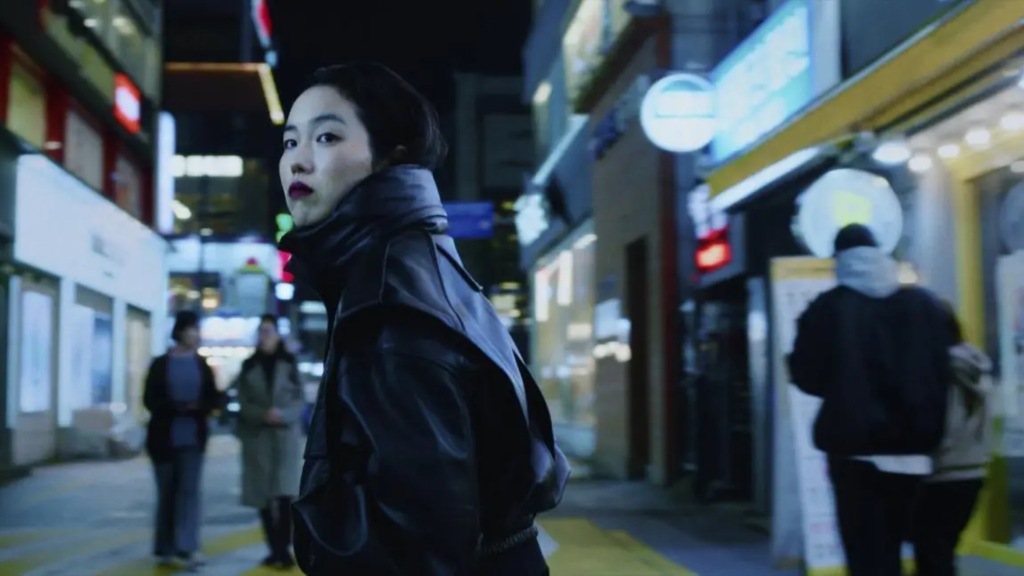
Here’s hoping Park Ji-min does more acting in the future, because the visual artist gives an amazing debut in Davy Chou’s fantastic Return to Seoul. The Cambodian-French director has uncovered a powerhouse talent who grabs your attention from the very first frame. As we are introduced to her Freddie, a French adoptee of Korean descent who returns to Korea on an impulsive whim, we are immediately drawn to her in a sequence where she rounds up strangers around a restaurant for several rounds of soju and chatter. It’s a sensational introduction, buzzing with energy, setting the stage for a unique character study of a character so unpredictable it’s hard to get bearings on, constantly catching us off guard, yet also finds herself increasingly uncertain and out of control on the whirlwind journey that Return to Seoul takes us all on.
Freddie undergoes a journey through transnationality as she steps into a world she feels foreign to, yet increasingly feels more complicated emotions between these two worlds she comes to inhabit. She begins the film confident in her singularity of identity – that she’s French, in a foreign land she has no real ties to – and yet as the film progresses, this becomes more complicated and she grapples with all manner of complex ideas regarding heritage, origin, and what it means to truly ‘return’. Language and communication plays a big part as Freddie, meeting with her birth family, needs to communicate through translators with a newfound acquaintance (Guka Han) and a good-natured aunt (Kim Sun-young). There are frustrations, but there are also tender moments, like when her birth father’s wife uses translation software to quietly, sincerely thank Freddie for bringing comfort to her husband’s troubled state of mind. Chou also explores patriarchal attitudes imposed onto Freddie in Korea as her birth father (a terrific Oh Gwang-rok) andvariosu other men over the course of her time in Korea attempt to pressure her into ‘staying’ for her own good, to protect her. It is played for laughs but also with a darker undercurrent of how some people see Freddie as a symbol, something to provide them with comfort or, in her father’s case, assuage his guilt. There’s a lot going on in Return to Seoul, and the way everything balances out is quite something.
Chou’s direction is outstanding in the way he uses not just words but silence as communication across boundaries. His use of music and club scenes in particular is so commendable, with a real vibrancy to his needle drops and utilising Park as a performer to perfection. She’s such a star in projecting such a vibrant outward confidence in these scenes, as she is in grabbing us with her quieter emotional moments. Chou’s direction matches her work in these moments accordingly. One of the most striking, heartbreaking shots of the film has us closed in on Freddie as the background, out of focus, a past she never got to know creeps back in. And while the film makes some notable leaps in tone and style across its multiple time leaps, Park’s performance consistently grounds it in this fascinating trajectory of a young woman going through so much, constantly unsure of herself, but by the end you can so clearly see how every step of the journey has impacted her.